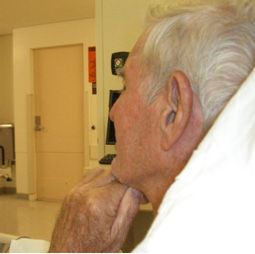- Clinical Technology
- Adult Immunization
- Hepatology
- Pediatric Immunization
- Screening
- Psychiatry
- Allergy
- Women's Health
- Cardiology
- Pediatrics
- Dermatology
- Endocrinology
- Pain Management
- Gastroenterology
- Infectious Disease
- Obesity Medicine
- Rheumatology
- Nephrology
- Neurology
- Pulmonology
Slurred Speech and Difficulty in Chewing and Swallowing: Your Dx?
The patient, a 70-year-old man, has been having difficulty chewing and swallowing has been using his hand to hold his jaw closed while he eats; otherwise, his jaw hangs open. His speech is slightly slurred.

A man in his 70’s comes to the emergency department after experiencing 5 days of slurred speech. He is also having some trouble swallowing and chewing, especially at dinner. He reports that he has been using his hand to hold his jaw closed; otherwise it just hangs open. He has also been using his hand to push his jaw up to help him chew.
The patient denies jaw pain, headache, trauma, visual problems, or weakness in his arms or legs. He has had no fevers and he does not use alcohol or illicit drugs. His past medical history is notable for basal cell carcinoma, and hypertension for which he takes furosemide and metoprolol. He is married and denies any recent travel other than to Hawaii where he and his wife own a time-share.
When you enter the examination room, the patient is seated in the position shown.
His vital signs are all within normal limits. Extra-ocular movements are full and without nystagmus. The oropharynx is clear and moist, but phonation seems weak and a bit nasal and speech is slightly slurred. The patient’s teeth and mandible show no tenderness or swelling. His cranial nerves are otherwise intact.
Examination of the neck shows no mass, swelling or jugular-venous distention. Findings from examination of the back, chest, and abdomen are all unremarkable, and there is no peripheral edema. The neurologic examination is normal except for the findings already mentioned.
Laboratory data, including a complete blood cell count and chemistry panel, are normal except for a potassium level of 3.1 mEq/L (normal, 3.5 to 5.0). CT scans of the brain show only age-related changes.
What do you suspect is causing this man’s symptoms, and what else should be in the differential diagnosis? What would you do next?
Please leave your comments below and click here for the discussion.
